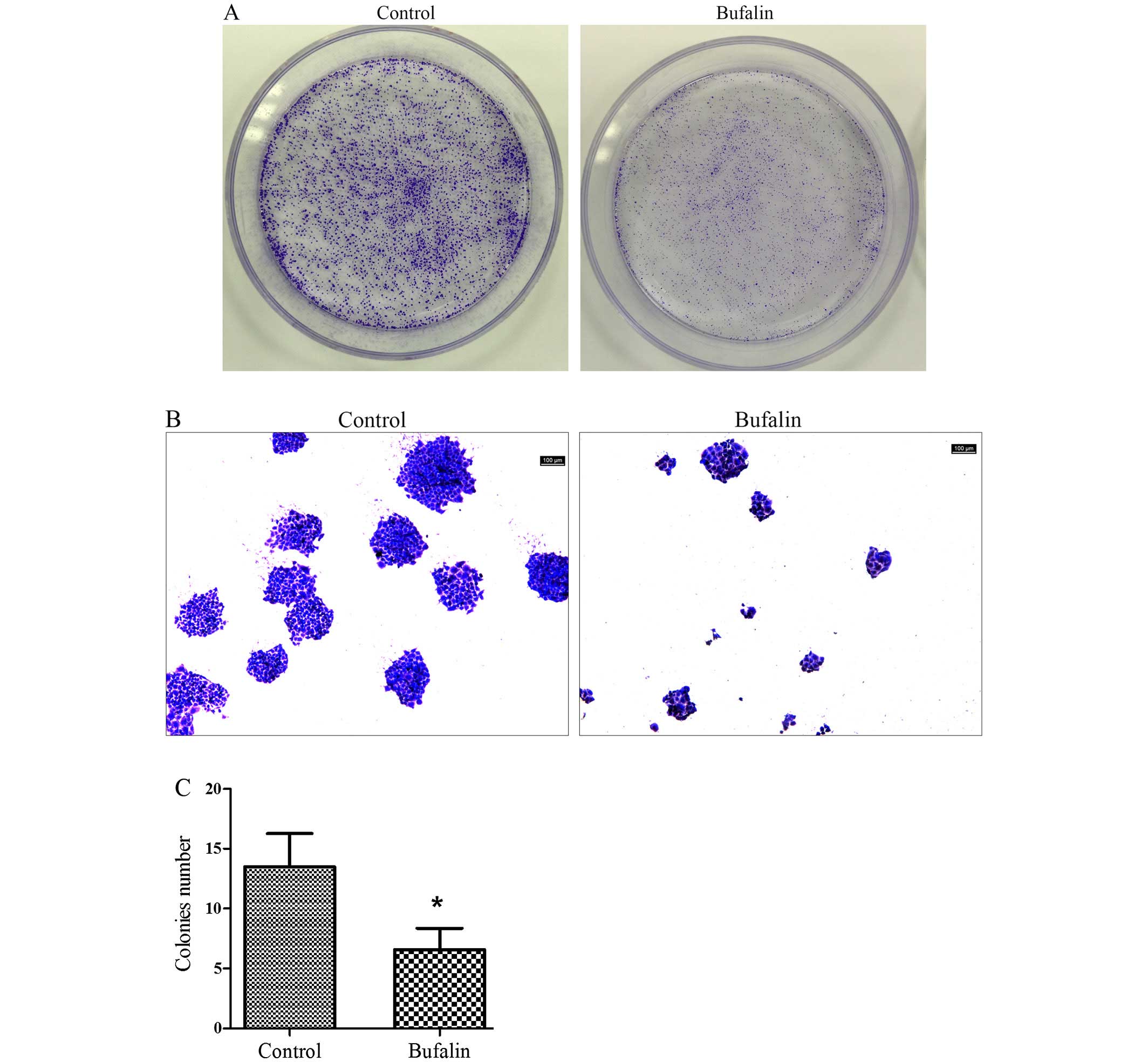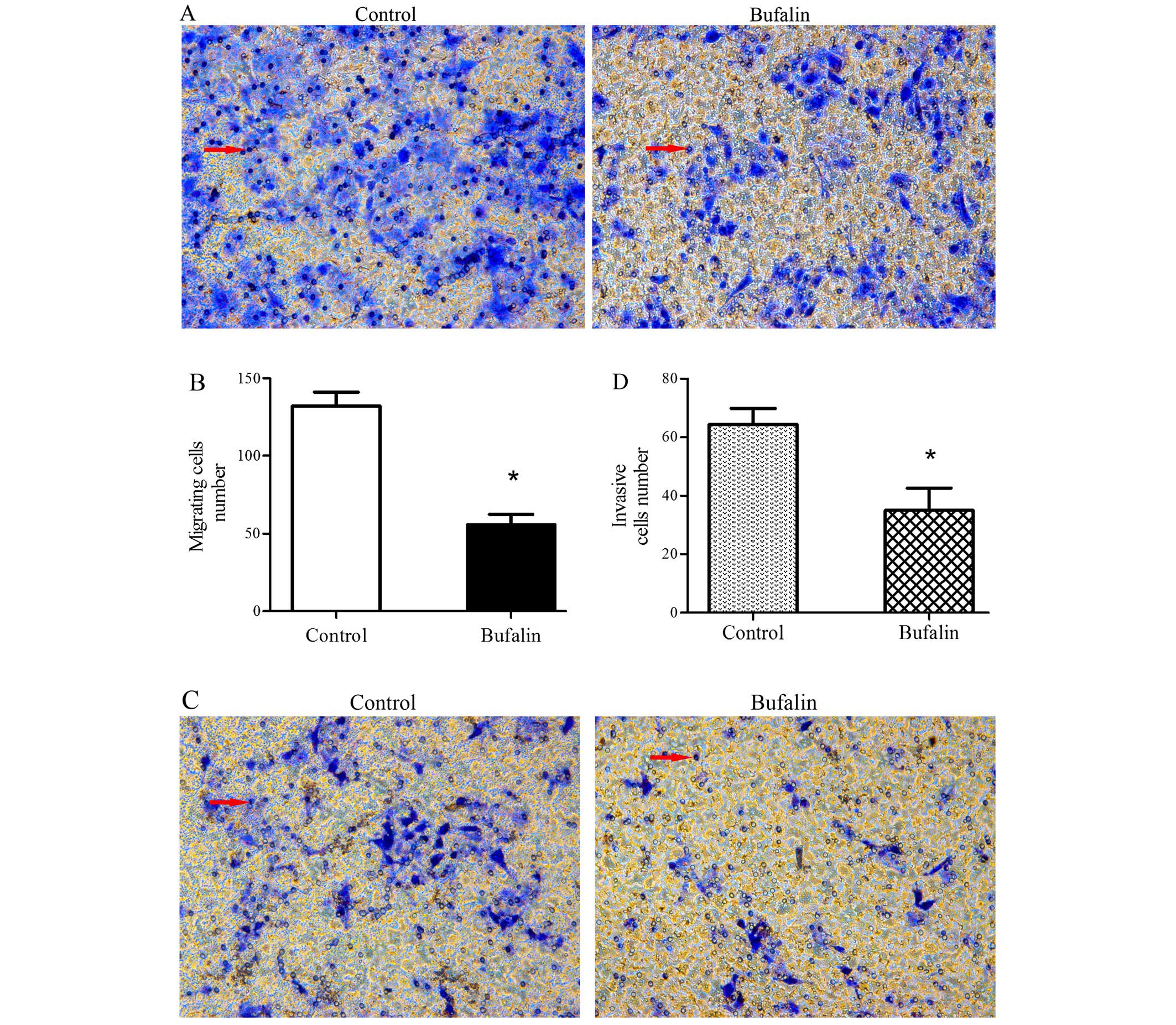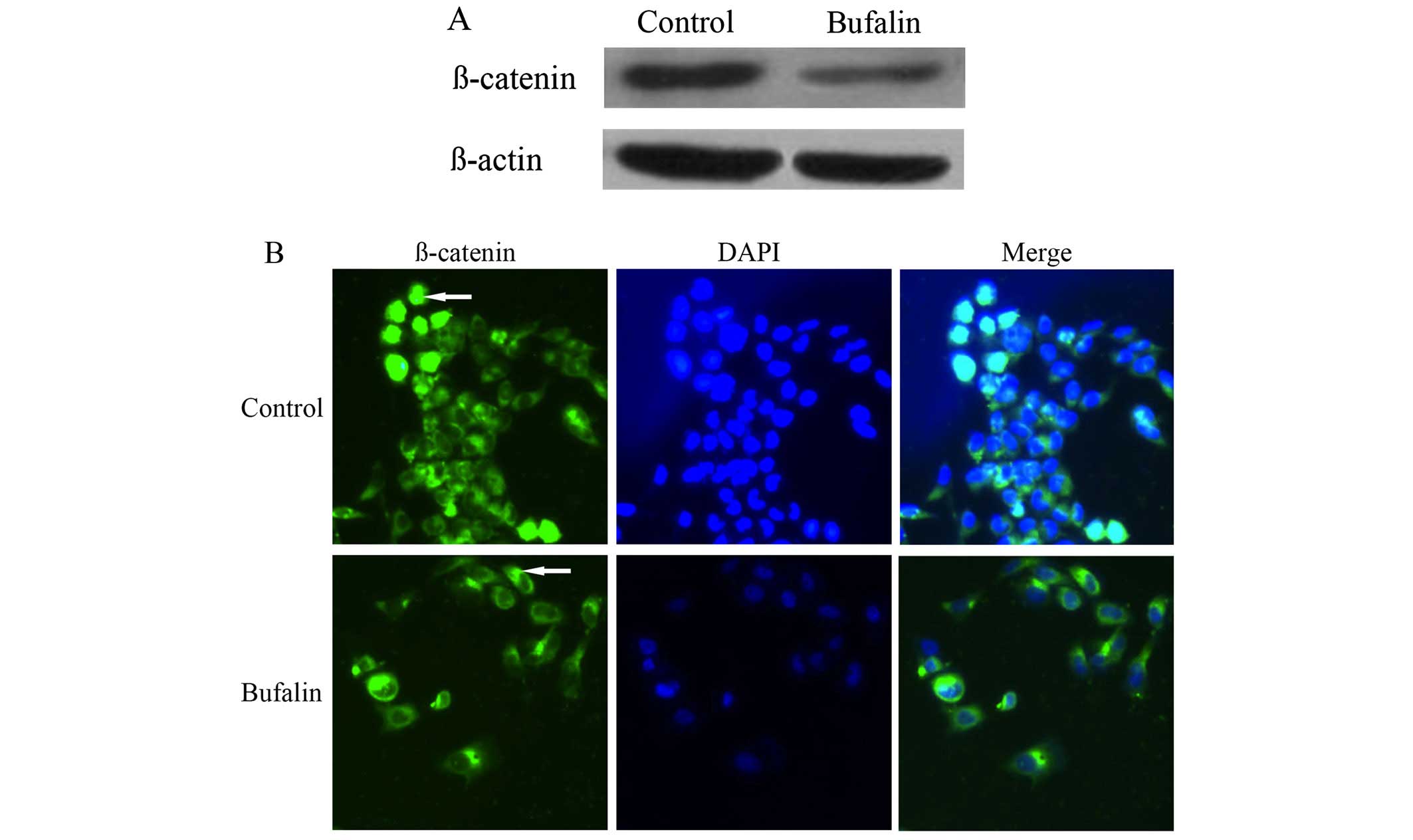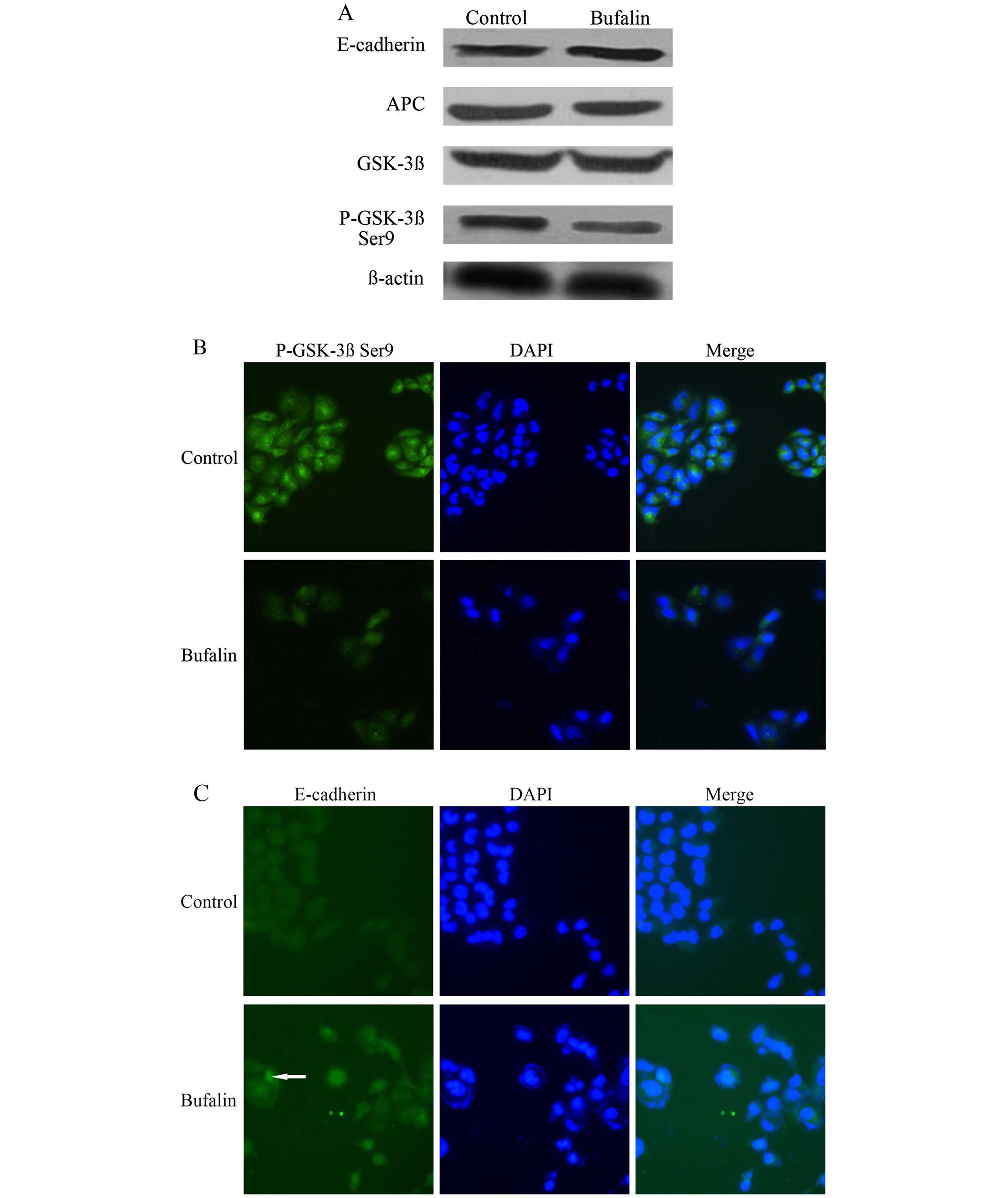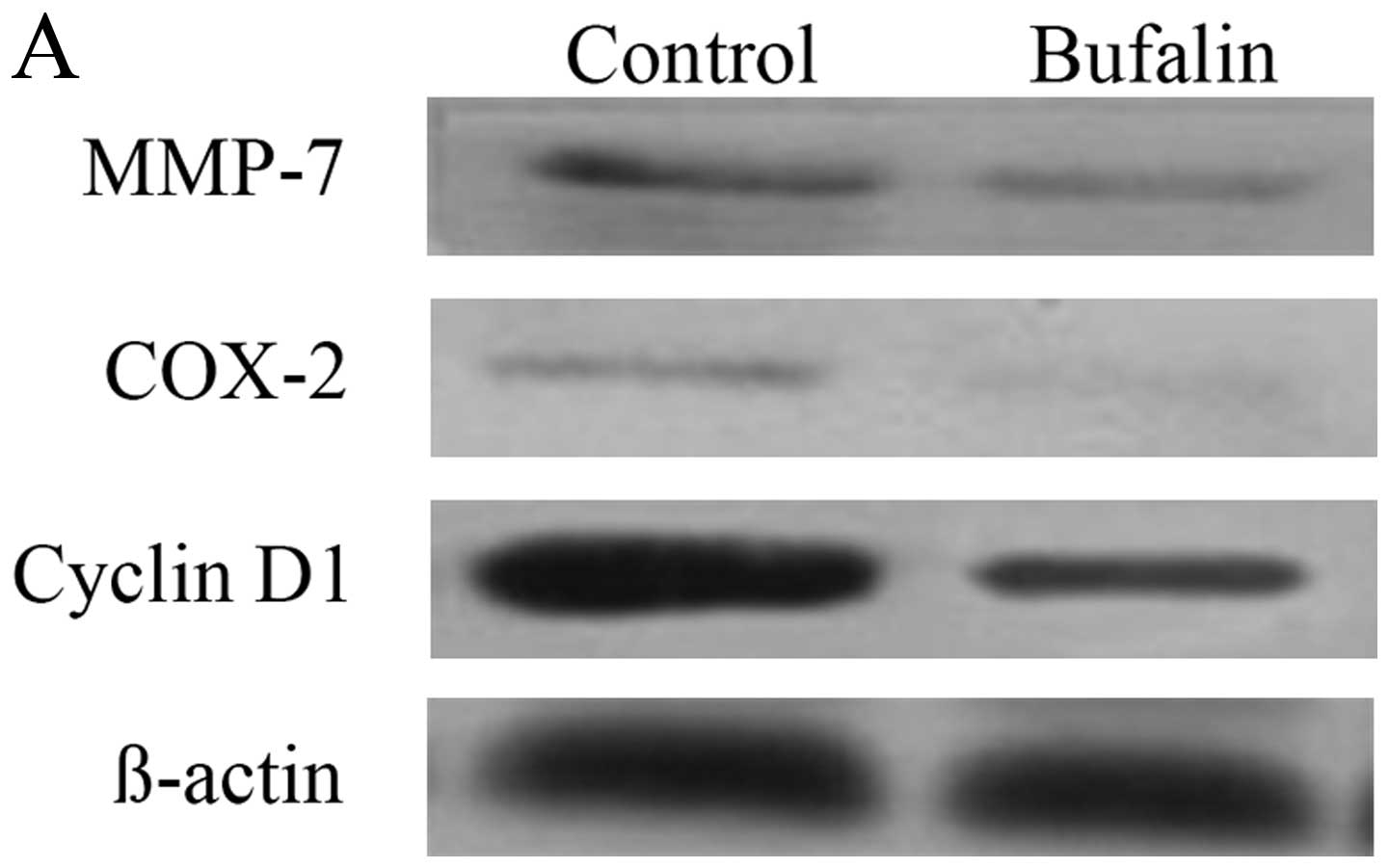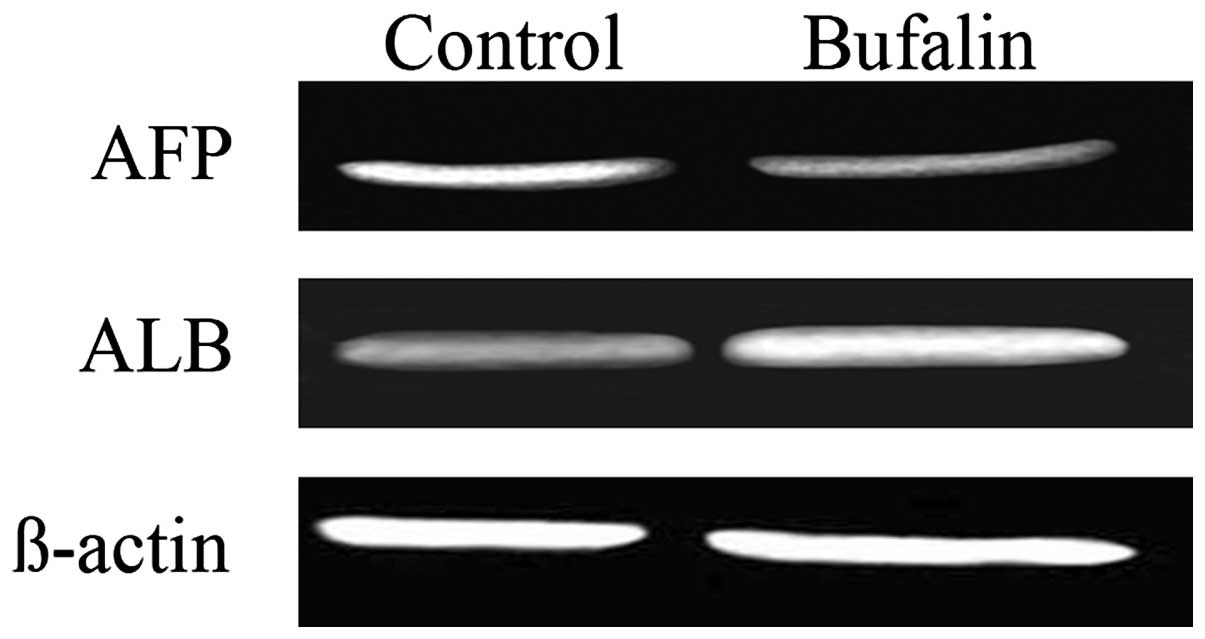|
1
|
Song MJ and Bae SH: Newer treatments for
advanced hepatocellular carcinoma. Korean J Intern Med. 29:149–155.
2014. View Article : Google Scholar : PubMed/NCBI
|
|
2
|
Wang Y, Shen Z, Zhu Z, Han R and Huai M
and Huai M: Clinical values of AFP, GPC3 mRNA in peripheral blood
for prediction of hepatocellular carcinoma recurrence following
OLT: AFP, GPC3 mRNA for prediction of HCC. Hepat Mon. 11:195–199.
2011.PubMed/NCBI
|
|
3
|
Zhao YJ, Ju Q and Li GC: Tumor markers for
hepatocellular carcinoma. Mol Clin Oncol. 1:593–598. 2013.
|
|
4
|
Jo S and Shim HK: A patient who has
survived for a long period with repeated radiotherapies for
multifocal extrahepatic metastases from hepatocellular carcinoma.
Radiat Oncol J. 31:267–272. 2013. View Article : Google Scholar
|
|
5
|
Lin S, Hoffmann K and Schemmer P:
Treatment of hepatocellular carcinoma: A systematic review. Liver
Cancer. 1:144–158. 2012. View Article : Google Scholar
|
|
6
|
Belghiti J and Fuks D: Liver resection and
transplantation in hepatocellular carcinoma. Liver Cancer. 1:71–82.
2012. View Article : Google Scholar
|
|
7
|
Vitale A, Volk M and Cillo U: Transplant
benefit for patients with hepatocellular carcinoma. World J
Gastroenterol. 19:9183–9188. 2013. View Article : Google Scholar
|
|
8
|
Chan SC: Liver transplantation for
hepatocellular carcinoma. Liver Cancer. 2:338–344. 2013. View Article : Google Scholar
|
|
9
|
Yin PH, Liu X, Qiu YY, Cai JF, Qin JM, Zhu
HR and Li Q: Anti-tumor activity and apoptosis-regulation
mechanisms of bufalin in various cancers: New hope for cancer
patients. Asian Pac J Cancer Prev. 13:5339–5343. 2012. View Article : Google Scholar
|
|
10
|
Gu W, Liu L, Fang FF, Huang F, Cheng BB
and Li B: Reversal effect of bufalin on multidrug resistance in
human hepatocellular carcinoma BEL-7402/5-FU cells. Oncol Rep.
31:216–222. 2014.
|
|
11
|
Gao Y, Li HX, Xu LT, Wang P, Xu LY, Cohen
L, Yang PY, Gu K and Meng ZQ: Bufalin enhances the
anti-proliferative effect of sorafenib on human hepatocellular
carcinoma cells through downregulation of ERK. Mol Biol Rep.
39:1683–1689. 2012. View Article : Google Scholar
|
|
12
|
Gai JQ, Qin JM and Fan YZ: The effect of
bufalin on proliferation and invasion of human liver cancer cells.
World Chin J Digestology. 22:1921–1927. 2014.
|
|
13
|
Pandurangan AK: Potential targets for
prevention of colorectal cancer: A focus on PI3K/Akt/mTOR and Wnt
pathways. Asian Pac J Cancer Prev. 14:2201–2205. 2013. View Article : Google Scholar : PubMed/NCBI
|
|
14
|
Xu MX, Zhao L, Deng C, Yang L, Wang Y, Guo
T, Li L, Lin J and Zhang L: Curcumin suppresses proliferation and
induces apoptosis of human hepatocellular carcinoma cells via the
wnt signaling pathway. Int J Oncol. 43:1951–1959. 2013.PubMed/NCBI
|
|
15
|
Wang F, He L, Dai WQ, Xu YP, Wu D, Lin CL,
Wu SM, Cheng P, Zhang Y, Shen M, et al: Salinomycin inhibits
proliferation and induces apoptosis of human hepatocellular
carcinoma cells in vitro and in vivo. PLoS One. 7:e506382012.
View Article : Google Scholar
|
|
16
|
Thompson MD, Dar MJ and Monga SP:
Pegylated interferon alpha targets Wnt signaling by inducing
nuclear export of β-catenin. J Hepatol. 54:506–512. 2011.
View Article : Google Scholar :
|
|
17
|
Cairns RA, Harris IS and Mak TW:
Regulation of cancer cell metabolism. Nat Rev Cancer. 11:85–95.
2011. View
Article : Google Scholar : PubMed/NCBI
|
|
18
|
Bachmann J, Raue A, Schilling M, Becker V,
Timmer J and Klingmüller U: Predictive mathematical models of
cancer signalling pathways. J Intern Med. 271:155–165. 2012.
View Article : Google Scholar
|
|
19
|
Di Maio A, Setar L, Tiozzo S and De Tomaso
AW: Wnt affects symmetry and morphogenesis during post-embryonic
development in colonial chordates. Evodevo. 6:172015. View Article : Google Scholar : PubMed/NCBI
|
|
20
|
Sastre-Perona A and Santisteban P: Role of
the wnt pathway in thyroid cancer. Front Endocrinol (Lausanne).
3:312012.
|
|
21
|
Saito-Diaz K, Chen TW, Wang X, Thorne CA,
Wallace HA, Page-McCaw A and Lee E: The way Wnt works: Components
and mechanism. Growth Factors. 31:1–31. 2013. View Article : Google Scholar :
|
|
22
|
Ren S, Johnson BG, Kida Y, Ip C, Davidson
KC, Lin SL, Kobayashi A, Lang RA, Hadjantonakis AK, Moon RT, et al:
LRP-6 is a coreceptor for multiple fibrogenic signaling pathways in
pericytes and myofibroblasts that are inhibited by DKK-1. Proc Natl
Acad Sci USA. 110:1440–1445. 2013. View Article : Google Scholar : PubMed/NCBI
|
|
23
|
Fuchs SY, Ougolkov AV, Spiegelman VS and
Minamoto T: Oncogenic beta-catenin signaling networks in colorectal
cancer. Cell Cycle. 4:1522–1539. 2005. View Article : Google Scholar : PubMed/NCBI
|
|
24
|
Nagasundaram N, Hailong Z, Jiming L,
Karthick V, George Priya Doss C, Chirangib C and Luonan C:
Analysing the effect of mutation on protein function and
discovering potential inhibitors of CDK4: Molecular modelling and
dynamics studies. PLoS One. 10:e01339692015. View Article : Google Scholar
|
|
25
|
Wu J, Guan X, Zhang K, Li YT, Bai P and Wu
J: A/G polymorphism of matrix metalloproteinase 7 gene promoter
region and cancer risk: A meta-analysis. Biomed Rep. 1:792–796.
2013.
|
|
26
|
Wu KK, Cheng HH and Chang TC:
5-methoxyindole metabolites of L-tryptophan: Control of COX-2
expression, inflammation and tumorigenesis. J Biomed Sci.
21:172014. View Article : Google Scholar : PubMed/NCBI
|
|
27
|
Lee MJ, Xu DY, Li H, Yu GR, Leem SH, Chu
IS, Kim IH and Kim DG: Pro-oncogenic potential of NM23-H2 in
hepatocellular carcinoma. Exp Mol Med. 44:214–224. 2012. View Article : Google Scholar :
|
|
28
|
Chen L, Li M, Li Q, Wang CJ and Xie SQ:
DKK1 promotes hepatocellular carcinoma cell migration and invasion
through β-catenin/MMP7 signaling pathway. Mol Cancer. 12:1572013.
View Article : Google Scholar
|
|
29
|
Sui W, Zhang Y, Wang Z, Wang Z, Jia Q, Wu
L and Zhang W: Antitumor effect of a selective COX-2 inhibitor,
celecoxib, may be attributed to angiogenesis inhibition through
modulating the PTEN/PI3K/Akt/HIF-1 pathway in an H22
murine hepatocarcinoma model. Oncol Rep. 31:2252–2260.
2014.PubMed/NCBI
|
|
30
|
Wands JR and Kim M: WNT/β-catenin
signaling and hepatocellular carcinoma. Hepatology. 60:452–454.
2014. View Article : Google Scholar : PubMed/NCBI
|
|
31
|
Somorjai IM and Martinez-Arias A: Wingless
signalling alters the levels, subcellular distribution and dynamics
of Armadillo and E-cadherin in third instar larval wing imaginal
discs. PLoS One. 3:e28932008. View Article : Google Scholar : PubMed/NCBI
|
|
32
|
Liu W, Wang H, Wang Y, Li H and Ji L:
Metabolic factors-triggered inflammatory response drives
antidepressant effects of exercise in CUMS rats. Psychiatry Res.
228:257–264. 2015. View Article : Google Scholar : PubMed/NCBI
|
|
33
|
Wolfe A, Thomas A, Edwards G, Jaseja R,
Guo GL and Apte U: Increased activation of the Wnt/β-catenin
pathway in spontaneous hepatocellular carcinoma observed in
farnesoid X receptor knockout mice. J Pharmacol Exp Ther.
338:12–21. 2011. View Article : Google Scholar : PubMed/NCBI
|
|
34
|
Hou KZ, Fu ZQ and Gong H: Chemokine ligand
20 enhances progression of hepatocellular carcinoma via
epithelial-mesenchymal transition. World J Gastroenterol.
21:475–483. 2015. View Article : Google Scholar : PubMed/NCBI
|
|
35
|
Kim HJ, Choi WJ and Lee CH:
Phosphorylation and reorganization of keratin networks:
Implications for carcinogenesis and epithelial mesenchymal
transition. Biomol Ther (Seoul). 23:301–312. 2015. View Article : Google Scholar
|
|
36
|
Wei X, Wang J, He J, Ma B and Chen J:
Biological characteristics of CD133+ cancer stem cells
derived from human laryngeal carcinoma cell line. Int J Clin Exp
Med. 7:2453–2462. 2014.
|
|
37
|
David JM and Rajasekaran AK: Dishonorable
discharge: The oncogenic roles of cleaved E-cadherin fragments.
Cancer Res. 72:2917–2923. 2012. View Article : Google Scholar : PubMed/NCBI
|
|
38
|
Xia W, Ma X, Li X, Dong H, Yi J, Zeng W
and Yang Z: miR-153 inhibits epithelial-to-mesenchymal transition
in hepatocellular carcinoma by targeting Snail. Oncol Rep.
34:655–662. 2015.PubMed/NCBI
|
|
39
|
Liao ZJ, Guo YH, Zhao Z, Yao JT, Xu R and
Nan KJ: Gemcitabine inhibits the micrometastasis of non-small cell
lung cancer by targeting the EpCAM-positive circulating tumor cells
via the HGF/cMET pathway. Int J Oncol. 45:651–658. 2014.PubMed/NCBI
|
|
40
|
Quan MF, Xiao LH, Liu ZH, Guo H, Ren KQ,
Liu F, Cao JG and Deng XY: 8-bromo-7-methoxychrysin inhibits
properties of liver cancer stem cells via downregulation of
β-catenin. World J Gastroenterol. 19:7680–7695. 2013. View Article : Google Scholar
|
|
41
|
Hu Z and Zhao W: Novel insights into the
molecular mechanisms of α-fetoprotein expression and malignant
phenotypes of hepatocellular carcinoma. Cell Mol Immunol. 9:7–8.
2012. View Article : Google Scholar
|
|
42
|
Kim HA, Nam K, Lee M and Kim SW:
Hypoxia/hepatoma dual specific suicide gene expression plasmid
delivery using bio-reducible polymer for hepatocellular carcinoma
therapy. J Control Release. 171:1–10. 2013. View Article : Google Scholar : PubMed/NCBI
|
|
43
|
Garcia-Martinez R, Caraceni P, Bernardi M,
Gines P, Arroyo V and Jalan R: Albumin: Pathophysiologic basis of
its role in the treatment of cirrhosis and its complications.
Hepatology. 58:1836–1846. 2013. View Article : Google Scholar : PubMed/NCBI
|
|
44
|
You J, Raghunathan VK, Son KJ, Patel D,
Haque A, Murphy CJ and Revzin A: Impact of nanotopography, heparin
hydrogel microstructures, and encapsulated fibroblasts on phenotype
of primary hepatocytes. ACS Appl Mater Interfaces. 7:12299–12308.
2015. View Article : Google Scholar :
|
|
45
|
Ohguchi S, Nakatsukasa H, Higashi T,
Ashida K, Nouso K, Ishizaki M, Hino N, Kobayashi Y, Uematsu S and
Tsuji T: Expression of alpha-fetoprotein and albumin genes in human
hepatocellular carcinomas: Limitations in the application of the
genes for targeting human hepatocellular carcinoma in gene therapy.
Hepatology. 27:599–607. 1998. View Article : Google Scholar : PubMed/NCBI
|
|
46
|
Toro A, Ardiri A, Mannino M, Arcerito MC,
Mannino G, Palermo F, Bertino G and Di Carlo I: Effect of pre- and
post-treatment α-fetoprotein levels and tumor size on survival of
patients with hepatocellular carcinoma treated by resection,
transarterial chemoembolization or radiofrequency ablation: A
retrospective study. BMC Surg. 14:402014. View Article : Google Scholar
|
|
47
|
Nojiri S and Joh T: Albumin suppresses
human hepatocellular carcinoma proliferation and the cell cycle.
Int J Mol Sci. 15:5163–5174. 2014. View Article : Google Scholar : PubMed/NCBI
|
|
48
|
Vernon AE and LaBonne C: Tumor metastasis:
A new twist on epithelial-mesenchymal transitions. Curr Biol.
14:R719–R721. 2004. View Article : Google Scholar : PubMed/NCBI
|
|
49
|
Valastyan S and Weinberg RA: Tumor
metastasis: Molecular insights and evolving paradigms. Cell.
147:275–292. 2011. View Article : Google Scholar : PubMed/NCBI
|
|
50
|
Yin P, Wang Y, Qiu Y, Hou L, Liu X, Qin J,
Duan Y, Liu P, Qiu M and Li Q: Bufalin-loaded mPEG-PLGA-PLL-cRGD
nanoparticles: Preparation, cellular uptake, tissue distribution,
and anticancer activity. Int J Nanomed. 7:3961–3969. 2012.
|















